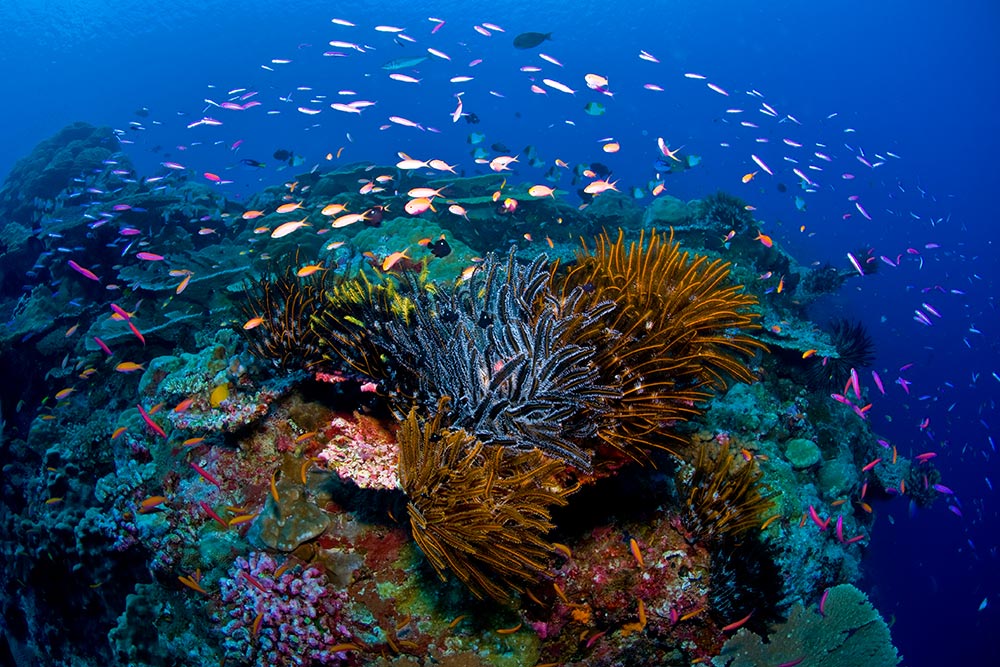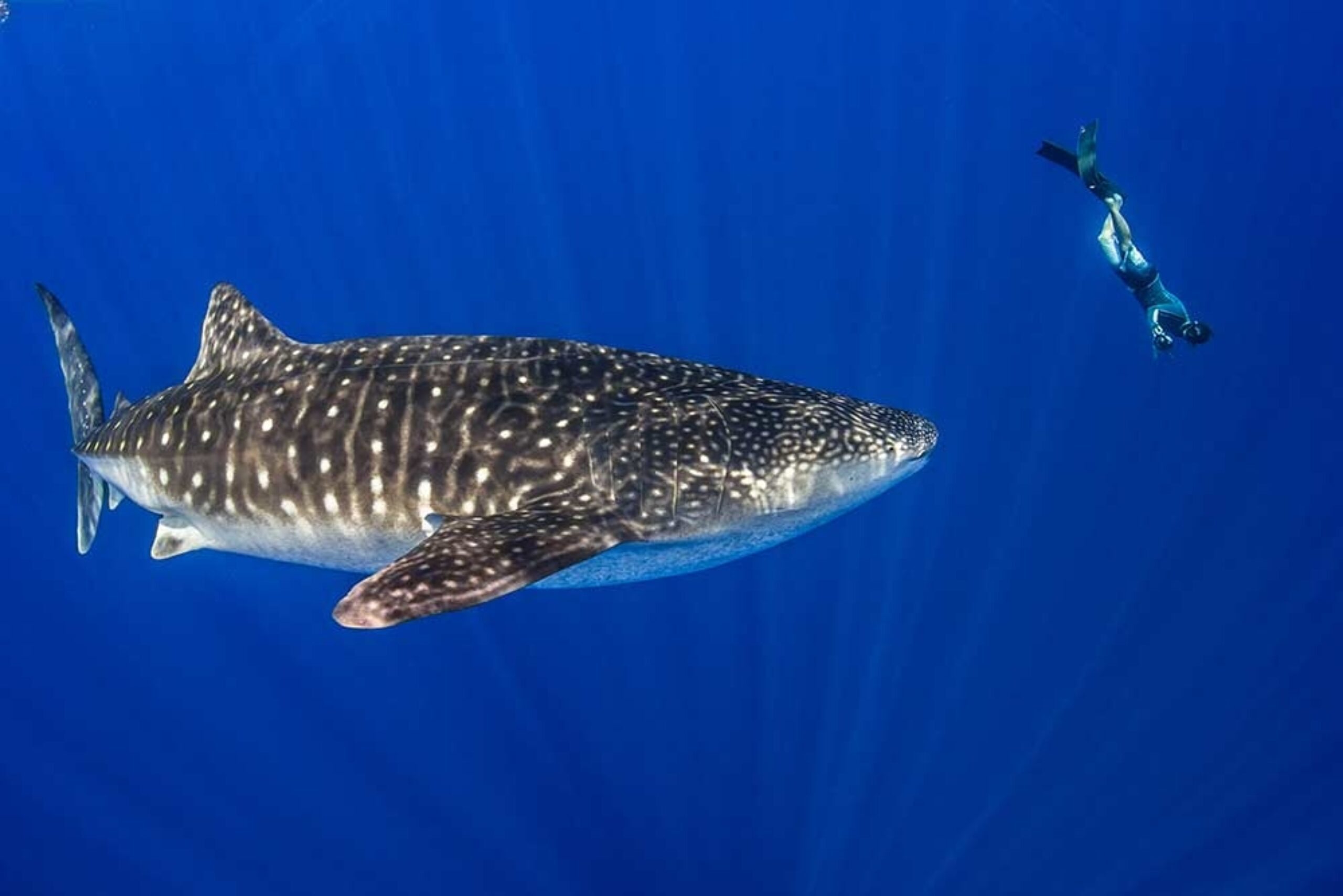
Christmas Island
Christmas Island
One of the most dramatically wall dives of the Java Trench
Christmas Island is a dot in the Indian Ocean surrounded by a fringing reef. It has one of the most dramatic wall dives of the Java Trench, the Indian Ocean’s deepest point. Its volcanic topography and endemic species —this is a hybrid hotspot for reef fishes— gain interest year after year among the scientific and diving community. Famous for the red crab migration and the interaction with whale sharks, Christmas offers unique travel experiences for photographers.
SCUBA DIVING
Christmas Island is a remote and exotic top diving destination in the eastern Indian Ocean. The region includes the Christmas and Cocos (Keeling) Islands, a marine suture zone between the Indian and Pacific Oceans. The latest research on the Indo-Pacific biogeographic border concludes that the Christmas and Cocos (Keeling) Islands have by far the most hybrid marine fishes of any location reported to date. Hybridization frequently occurs between Indian and Pacific Ocean sister species and in most cases where one or both parent species are rare (Gerald R Allen and Jean-Paul Adrian Hobbs – Dec 2014).
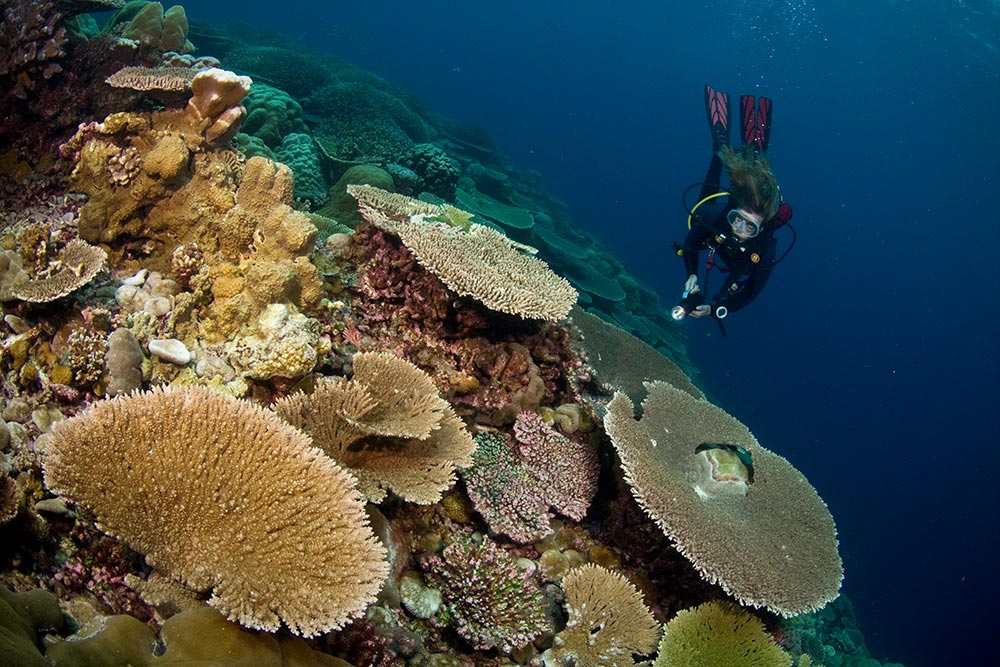
DIVE SITES
Christmas Island is the peak of an underwater volcano, with its base located 3,000 meters below the ocean’s surface, surrounded by shallow waters, and bordered by coral reefs that drop steeply into the deep blue sea, just a short distance from the shore, creating one of the longest underwater walls in the world. Visibility often reaches up to 50 meters, making it common to see other divers exploring the stunning underwater landscapes. The dive sites along this wall are home to pristine corals, unique marine life, and hundreds of fish species. While diving, you may encounter dolphins, whale sharks, and various types of sharks. Numerous caves and the impressive Eidsvold Wreck enhance this extraordinary diving experience.
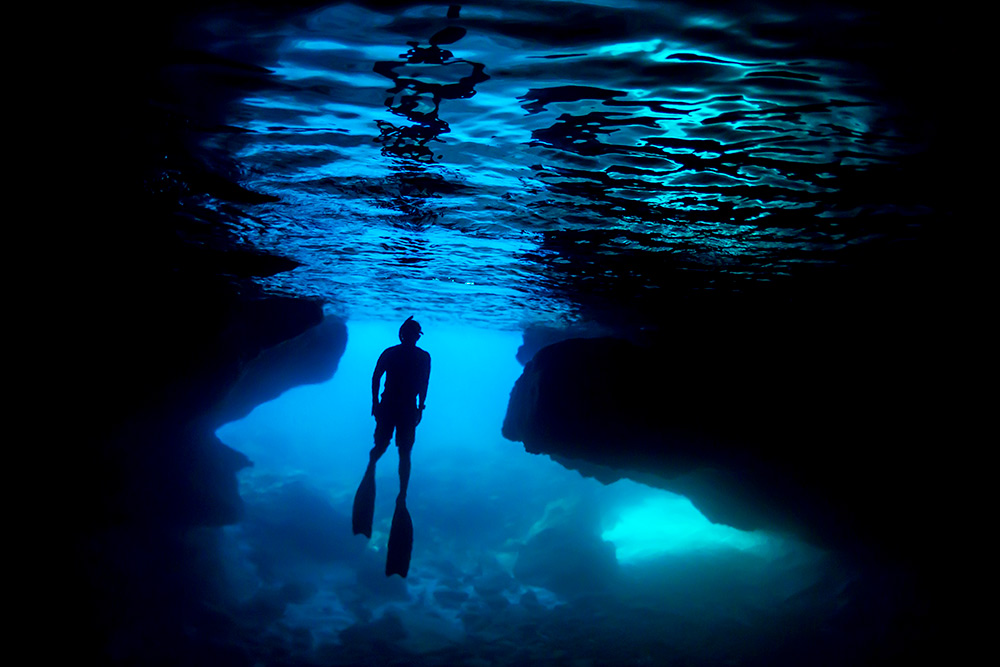
Christmas Island is a narrow tropical reef that descends into a deep abyss. This reef is home to unspoiled corals and a rich variety of marine life. The northern coast, in particular, features some of the most pristine corals in the world, including Acropora and plate corals, which host numerous small tropical species such as surgeonfish, wrasse, butterflyfish, gobies, anemones, eels, and many others, making it a delight for photographers.
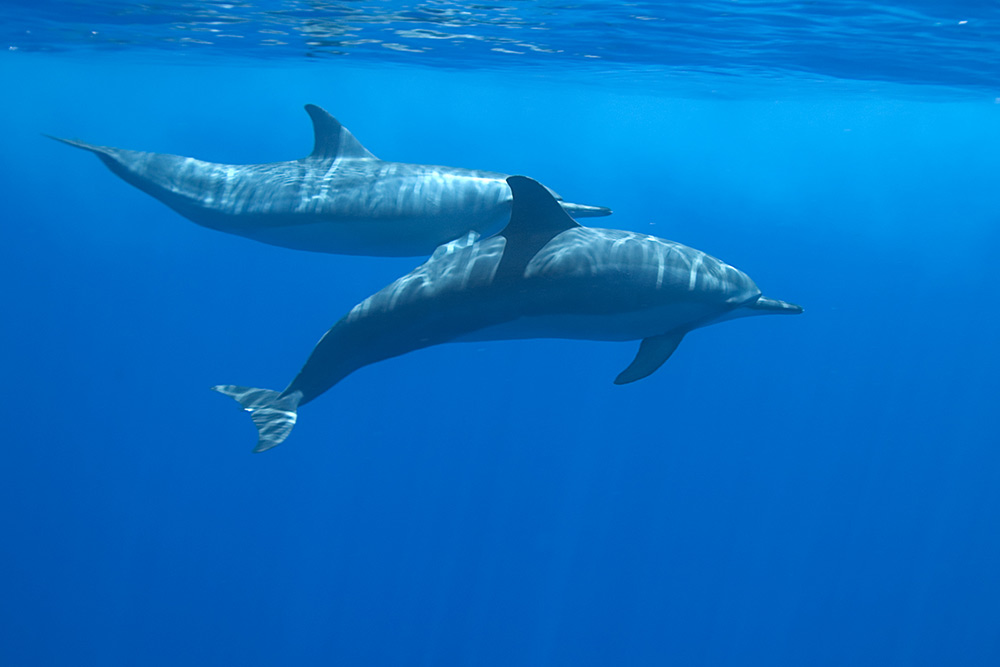
During your diving trip, you may also encounter some of the ocean’s most important residents, including whale sharks, manta rays, sea turtles, and spinner dolphins. Pelagic fish such as rainbow runners, trevally, and tuna can be seen cruising along the walls, and occasionally, a curious shark may approach. One of the highlights of your diving adventure could be a sighting of the majestic whale shark. Encounters with these gentle giants typically occur between November and April, coinciding with the red crab migration, making it an experience you won’t want to miss!
DIVE SEASON
Diving on Christmas Island is possible throughout the year, as visibility and currents are largely stable despite the monsoon seasons. The average air temperature remains consistently high at 28°C (82°F), with slightly cooler temperatures in July and August. The water temperature typically ranges from 28°C (82°F) from November to March and drops to around 26°C (79°F) from April to October.
During the dry season, from April to October, surface conditions are calm, and visibility is excellent. However, in the wet season, from November to March, some dive sites on the northern side may become inaccessible, and visibility can decrease to between 20 to 30 meters (65 to 100 feet). This season is also when plankton blooms occur, attracting manta rays and whale sharks.
The Red Crab Migration
At the beginning of the wet season, typically from October to November, most adult Red Crabs embark on a spectacular migration from the forest to the coast to breed and release their eggs into the sea. This breeding event usually occurs simultaneously across the island. The arrival of the rains creates moist, overcast conditions, making it easier for the crabs to undertake their long and challenging journey to the sea. Additionally, the timing of this migration and the breeding sequence is linked to the phases of the moon, ensuring that female Red Crabs release their eggs into the ocean precisely during high tide at the last quarter of the moon.
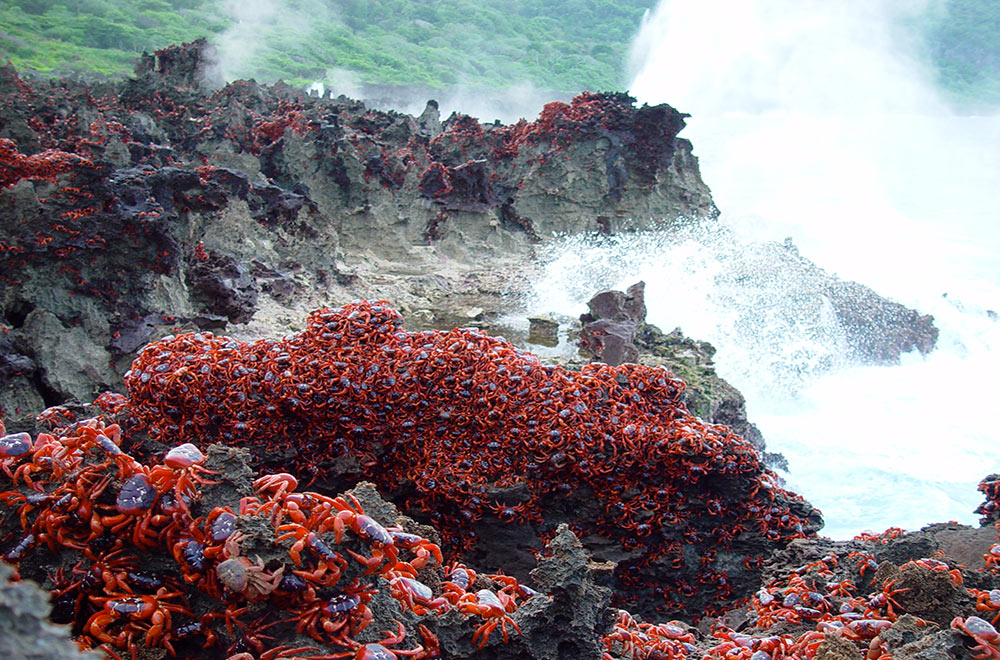
It is thought that this occurs at this time because there is the least difference between high and low tides. The sea level at the base of the cliffs and on the beaches, where the females release their eggs, at this time varies the least for a longer period, and it is therefore safer for the females approaching the water’s edge to release their eggs. Sometimes there are earlier and later migrations of smaller numbers of crabs but all migrations retain this same lunar rhythm.
The Best Time To Visit
The best time to go is from May to November, during the dry season. The red crab migration starts can occur at the beginning of the wet season, in November, December, depending on the whims of nature. December to April is the wet season and can be subject to monsoons.
HOW TO GET THERE
By Air. A few airlines fly to Christmas Island, including Virgin Australia from Perth and Garuda from Jakarta
By Private Charter Boat (Liveaboards), generally from Indonesia. There are currently no scheduled cruise trip for Christmas Island. We will keep this page updated if cruise trip visits are announced.
By Private Visiting Yachts. The Port of Christmas Island and the community welcomes visiting yachts to call at Flying Fish Cove.
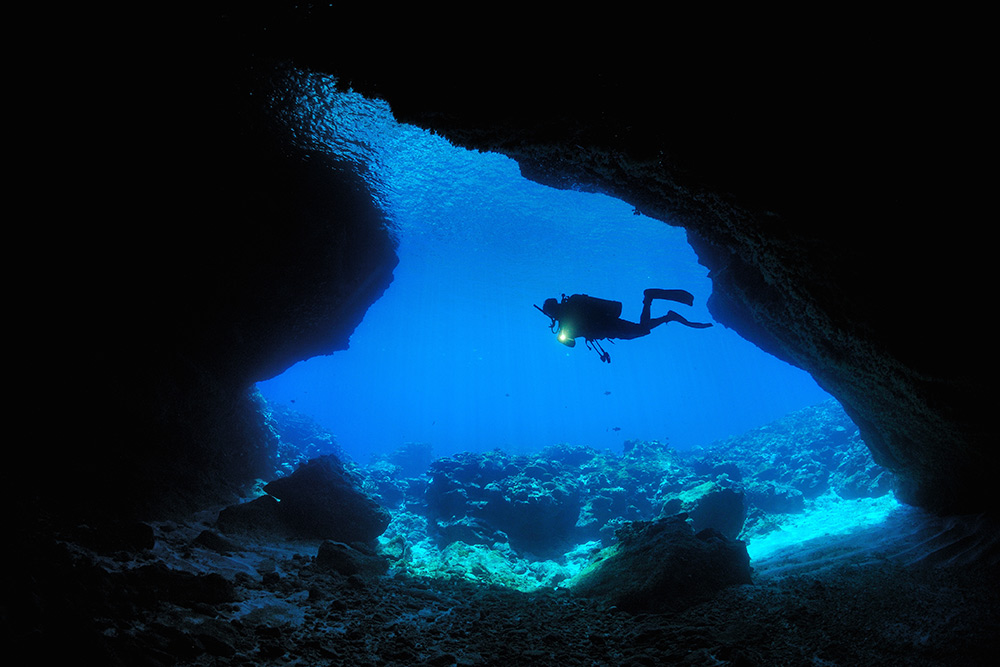
TRAVEL PACKAGES
Cruising Indonesia provides one- or two-week resort stay packages that include diving experiences. These packages can be combined with visits to various destinations in Indonesia or with land tours in Java or Bali.
